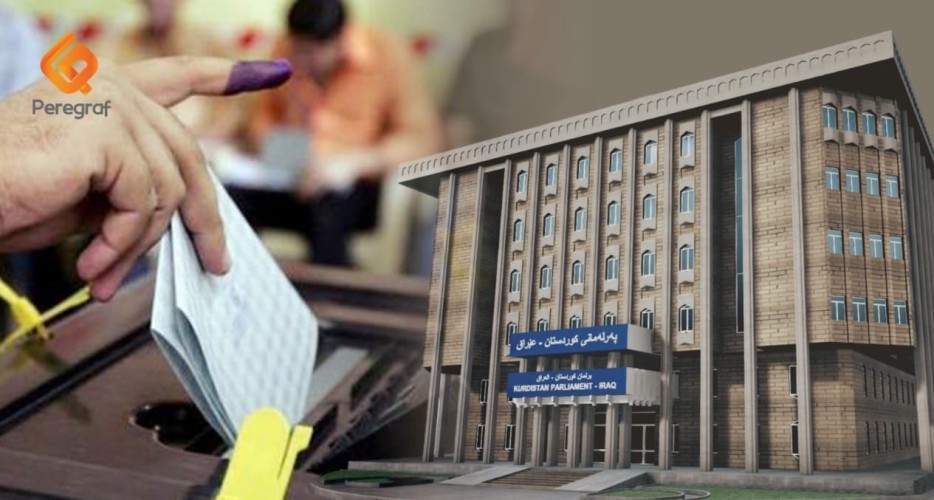One Year After Kurdistan’s Elections, Government Formation Remains Elusive Amid KDP–PUK Rivalry

PEREGRAF- Today marks the first anniversary of the sixth Kurdistan Region parliamentary elections, but the Region remains without a new government or functioning parliament. The protracted deadlock between the Kurdistan Democratic Party (KDP) and the Patriotic Union of Kurdistan (PUK), the two ruling parties and top winners of the 2024 vote, has left the political process at a standstill.
Despite securing enough seats together to form a majority coalition, the two historic rivals have failed to agree on power-sharing arrangements—most notably over security and intelligence posts. As a result, the Kurdistan Regional Government’s (KRG) 10th cabinet has not been formed, and parliament has been unable to reconvene since its first session last December.
Barzani Urges Compromise, Talabani Demands Change
KDP President Masoud Barzani, speaking to religious clerics on October 18, urged the PUK to stop delaying and accept what he described as "a balanced proposal" to move forward with KRG cabinet formation.
"I hope this issue is concluded before the Iraqi parliamentary elections and that our brothers in the PUK come and form the new cabinet of Kurdistan regional government with the KDP, because delaying its formation is neither in the interest of the Kurdistan Region nor in the interest of the wider region ," Barzani said.
He emphasized that nearly a year of talks had already secured agreement on the general framework of governance. "The offer we have presented has a great deal of balance. I do not believe anything better or more is possible than the offer the KDP has given," he added.
PUK President Bafel Talabani, however, struck a defiant tone earlier in a rally in Sulaymaniyah the same day. "A government will never be established in Kurdistan until we are certain that it will not repeat the mistakes of the past and will give us the opportunity to serve you," he declared, underscoring his party’s insistence on guarantees for real change before joining any cabinet.
Security Posts at the Heart of the Dispute
The dispute largely revolves around control of the Ministry of Interior and the Kurdistan Region Security Council. KDP negotiator Dilshad Shahab confirmed that his party will not hand over the Interior Ministry, calling it non-negotiable. The PUK, meanwhile, has demanded either the Interior Ministry or the post of Security Council Advisor, along with senior executive roles to ensure a balance of power.
These positions carry weight far beyond ordinary ministries. The Security Council supervises Kurdistan’s two main intelligence agencies—Parastin (loyal to the KDP) and Zanyari (controlled by the PUK)—and has been dominated by Prime Minister Masrour Barzani’s KDP since its establishment in 2011.
Parliament Paralyzed
The deadlock has left Kurdistan’s newly elected parliament unable to function. Since its first session on December 2, 2024, lawmakers have failed to elect a speaker or parliamentary presidency, a necessary step before regular sessions can begin.
The October 2024 elections produced a fragmented assembly: the KDP won 42 seats, the PUK 25, New Generation 15, the Kurdistan Islamic Union 7, while smaller parties and minorities shared the remainder. A majority of 51 seats is needed to form a government, making cooperation between the KDP and PUK essential. Together, they control 67 seats—well above the threshold—but internal rivalries continue to block progress.
Opposition Adds Pressure
Opposition parties have further complicated matters. Seven parties rejected the election results as fraudulent, with the Kurdistan Justice Group (Komal) boycotting parliament altogether. The New Generation Movement, now the third-largest party with 15 seats, has imposed strict conditions for joining a government, leaving little room for maneuver.
Meanwhile, the Gorran Movement, once a formidable opposition force, collapsed to a single seat, continuing a steep decline since the death of its founder Nawshirwan Mustafa. Other new parties, such as the National Stance Movement (Halwest) and Lahur Sheikh Jangi’s People’s Front (Baray Gal), also failed to meet expectations, securing only six seats combined.
A Year of Stalemate
Kurdistan Region President Nechirvan Barzani acknowledged at the MERI Forum in early October that progress remains slow. "We have passed very important stages with the PUK, but I don’t believe the Kurdistan Regional Government cabinet will be formed before the Iraqi parliamentary elections," he said.
The prolonged impasse has not only prevented the formation of the 10th cabinet of KRG but also stalled legislative activity, leaving the Kurdistan Region in political limbo at a time of economic crisis and continued disputes with Baghdad over budget transfers.
One year on, the 2024 elections reaffirmed the dominance of the KDP and PUK but also highlighted the rise of New Generation and the steady decline of traditional opposition forces. Yet for many voters, the central question remains unanswered: when will their ballots translate into a functioning government?.
Until the KDP and PUK can bridge their differences, Kurdistan’s institutions are set to remain frozen, with the 10th cabinet of KRG still only a promise one year after the people went to the polls.